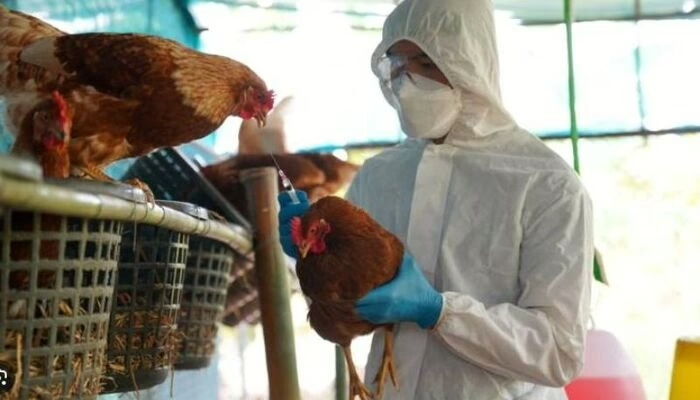The Centers for Disease Control and Prevention (CDC) has confirmed the first severe bird flu case in the U.S., raising concerns about public health. The patient, a resident of Louisiana, contracted the H5N1 bird flu after exposure to sick and dead birds in backyard flocks. This marks the first U.S. case linked to such exposure, highlighting the keyword “bird flu outbreak” as a growing public health issue.
Details of the Case
Health officials in Louisiana confirmed the infection on Friday. The patient, over 65 years old with chronic medical conditions, is hospitalized in critical condition. Dr. Céline Gounder, a public health expert, explained that the case represents a rare progression to severe illness.
Until now, H5N1 cases in the U.S. have remained mild, typically presenting as conjunctivitis or respiratory symptoms. The Louisiana case underscores the potential severity of bird flu under specific conditions, such as age and underlying health issues.
Read: WHO’s Termination of Polio Officers Sparks Outrage in Khyber
Risk Factors and Public Health Impact
Although the risk to the general population remains low, certain groups face heightened vulnerability. Farm workers, poultry handlers, and individuals with recreational exposure to birds are at greater risk. Health experts also warn against consuming raw milk and other unpasteurized products during this period.
Dr. Gounder emphasized that while the current threat is manageable, repeated exposure to the virus in humans could lead to mutations. These mutations could potentially enable human-to-human transmission, a scenario that could trigger a pandemic.
Proactive Measures in California
In response to the increasing bird flu cases, California Governor Gavin Newsom declared a state of emergency. The proclamation aims to enhance resources and expedite responses to the outbreak. Dr. Gounder praised California’s robust testing efforts, which serve as a model for other states.
The emergency declaration allows for flexible hiring and contracting, enabling agencies to act swiftly. Additionally, the USDA has mandated more aggressive testing across the country to identify and mitigate the virus’s spread.
Concerns About Mutation
Experts remain vigilant about the virus’s potential to adapt. With each human exposure, the likelihood of a mutation increases. While no human-to-human transmission has occurred yet, monitoring remains critical to prevent a global health crisis.
What You Can Do
Health officials advise the public to stay informed and take precautions. Those working with birds or livestock should use protective equipment and avoid unnecessary contact. Following food safety guidelines, such as avoiding raw milk, is equally important.
This case serves as a reminder of the unpredictable nature of zoonotic diseases. While the immediate risk remains low, continued vigilance is essential to prevent larger outbreaks. By addressing the “bird flu outbreak” proactively, public health systems can mitigate risks and protect communities.
Follow Day News on Google News, Instagram, YouTube, Facebook, Whats App, and TikTok for latest updates
